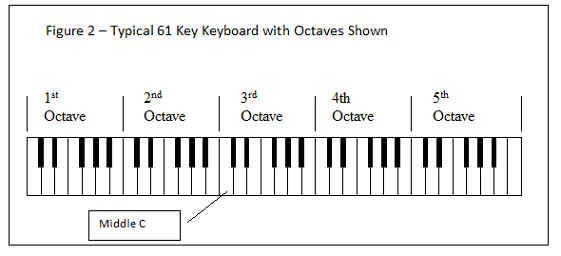As you start to collect songs to this songbook, I think you need to take into consideration also what are the most suitable keys for you to sing a particular song. For most people, the biggest problem is to sing higher notes/pitches. Singers like Iglesias and Nana seem to have a well trained 'head voice', which makes it easy for them to sing pretty high (I really like their style of singing), but for beginners singing in the same key would be tremendously difficult.
So, if you sing with a karaoke backing track, you need to have the option to transpose the key up- and down to suit your needs. Or, if you use a score or a 'band sheet' with chords (with someone accompanying on an instrument) you need to rewrite those in a suitable key. I'm sure all us musicians here on the forum can help you transpose songs into different keys.
Some quick notes on singing pitches.
- Women will most often experience a "barrier" at Bb3 (European: Bb1), that's B-flat above middle-C. If they can't switch into a lighter 'head voice' mechanism, pitches above that will become straining and singing much more difficult, since you need to add a lot more pressure to raise the pitch. The upper limit for the heavier 'chest voice' by adding pressure lies usually at F4, from where upwards it's almost impossible without switching to the lighter head voice mechanism. Of course, in some styles of music this sort of "screaming" by pushing the 'chest voice' up is even a must, but I have a feeling that most people here are not after this kind of "compressed" singing. The pitch for women's lowest note varies according to the voice type, but the "still usable" pitches would in average be somewhere around G2 or A2 (below middle-C).
- For men, this higher barrier would be around the same note, but an octave lower, that is Bb2 (below middle-C). As with women, men can push the chest voice up to F3, from where upwards it will become almost impossible without proper training or seriously hurting your voice. Lowest pitch varies, of course, but most men's voices "stop" at F1. Since men have a very strong component of 'chest voice' (we use mostly 'chest voice' when we speak), the battle for those higher notes will be even more difficult than for women.
The million dollar question is, of course, how to train the 'head voice'. That's another "can of worms", and there are all sorts of ideas floating around of how to do that (one example being the previously mentioned charlatan Seth Riggs). I'll come back with some of my ideas regarding the 'head voice' later.




